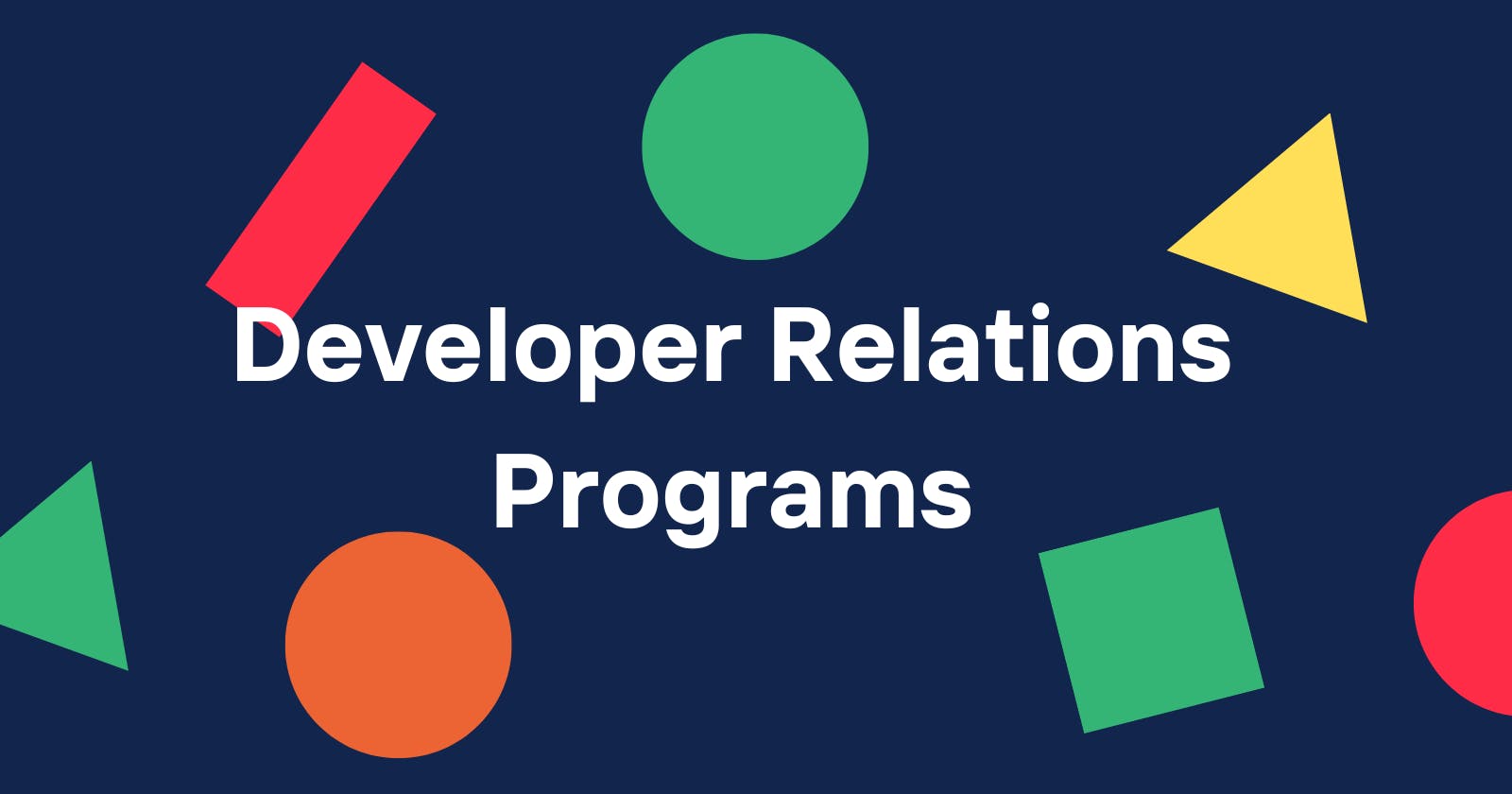Effectiveness of Developer Relations Programs: A Study of MongoDB, AWS, and Vercel
Table of contents
As part of a challenge I started called #90DaysofDevRel, I've been learning about developer relations for some weeks and was given the task of researching and writing a report regarding three developer companies, their developer relations programs, and how effective their activities are. I picked MongoDB, Amazon Web Services (AWS), and Vercel. I categorized each company's activities into three areas. Here are my findings thus far:
MongoDB
MongoDB is a popular cross-platform NoSQL database. This means that, unlike traditional relational databases, it stores data in a way that is not a table. MongoDB stores data in a format that is similar to JSON. This makes it flexible and scalable for a wide range of uses, from small applications to large enterprise systems. Here are some ways their DevRel team has actively educated and enabled its users:
Community: The company has a community version for its members and has built a developer community that is friendly and helpful. They host a variety of events and webinars, both online and offline, centered around MongoDB, and also go on global tours to connect with developers and learn from their experiences. This commitment to engaging with their community and seeking feedback is a testament to the company's drive to constantly improve and innovate its product.
Education: MongoDB has several educational resources to help developers become skilled in their products, such as the MongoDB University program, certification programs, and academic courses and curriculums on their products for educators and universities. There are also numerous how-to guides provided by the community for its members.
Resources and Tools: Their documentation is well structured and has code samples, an easy how-to-get-started guide, and specific sections for different developers on how to use their product, such as JavaScript, C#, and Python. Etc., use cases, examples, and code samples as to how to use their products. They’ve also created tools to empower developers, such as CLIs, plugins, and drivers.
Overall, the MongoDB DevRel team has put in a great effort to create a sense of community, a well-thought-out educational guide, an easy-to-use user guide, and amazing events and activities.
Amazon Web Services (AWS)
AWS is the world's most widely adopted cloud computing platform. AWS provides a range of cloud-based services, including computing, storage, databases, analytics, machine learning, IoT, security, and more, to individuals, businesses, and governments worldwide. AWS allows developers to build and deploy scalable, reliable, and cost-effective cloud applications. Here are some initiatives they've implemented that have made them stand out:
Community: The AWS community includes developers, architects, administrators, engineers, business leaders, and more from all over the world. Overall, the AWS community is passionate, collaborative, and supportive. They share knowledge through various channels, such as events, meetups, and webinars, both in person and virtually, and host conferences about their tools and how best to use them. Amazon is also big on open-source, and they show this by supporting, contributing to, and partnering with open-source leaders globally.
Education: They have several customer enablement programs, like certification programs, to help their users learn new skills. These programs have helped build a strong community of certified professionals who are known all over the world for their knowledge and skills in AWS.
Resources and Tools: Having multiple products, AWS has put great effort into creating good documentation, how-to-get-started guides, blog posts from experts, and tutorials on how to use their products. It's also interesting to know that their documentation and tutorials are available in different languages so that users from all over the world can use them easily.
Vercel
Vercel is a cloud-based platform for developing, deploying, and hosting modern front-end applications. They are also the creators of Next.js, a popular open-source React framework for building server-side rendering (SSR) and static web applications.
Community: Vercel's developer community is extremely active. As a company with a strong commitment to open source, they have developed valuable, free, and user-friendly software that thousands of developers around the world adore. Nextjs, their open-source React framework that thousands of developers use to create front-end applications, is an illustration of this. In addition, they host conferences about the software and tools they've created for developers. This provides the community's developers with a sense of belonging.
Education: The DevRel team at Vercel not only educates developers on how to use their platform and open-source software through tutorials, blog posts, practical use cases, and video content, but they also showcase their expertise by building amazing products using Vercel's tools and writing tutorials on how they accomplished their goals. This provides developers with real-world examples of how to build their own products, making it an exciting and valuable learning experience.
Resources and Tools: Vercel provides developers and managers with a comprehensive set of tools and resources for utilizing their products. There are CLI tools, excellent documentation on how to use their product, guides for integrating with other tools, and simple-to-use templates for the most popular front-end frameworks and libraries.
Conclusively, while the developer relations (DevRel) approach companies take depends entirely on the goals and mission of the company, based on my research, I have discovered that these companies have something in common. They all work towards building a healthy relationship with their customers by educating, enabling, and inspiring them to build with incredible tools.
Thanks for reading. I hope you had as much fun reading it as I did writing it.
This article is part of my #90DaysofDevRel learning journey. For more updates on the challenge, feel free to connect with me on Twitter, where I document my daily activities.

